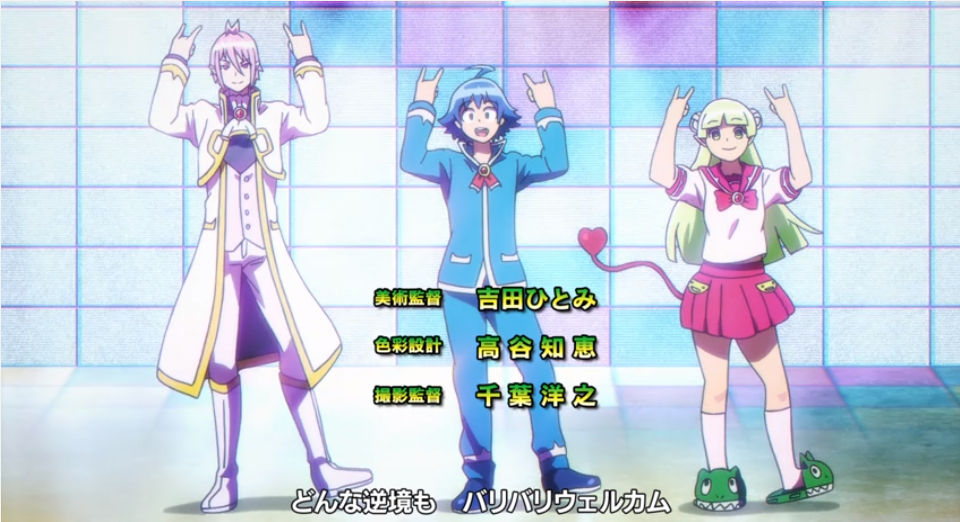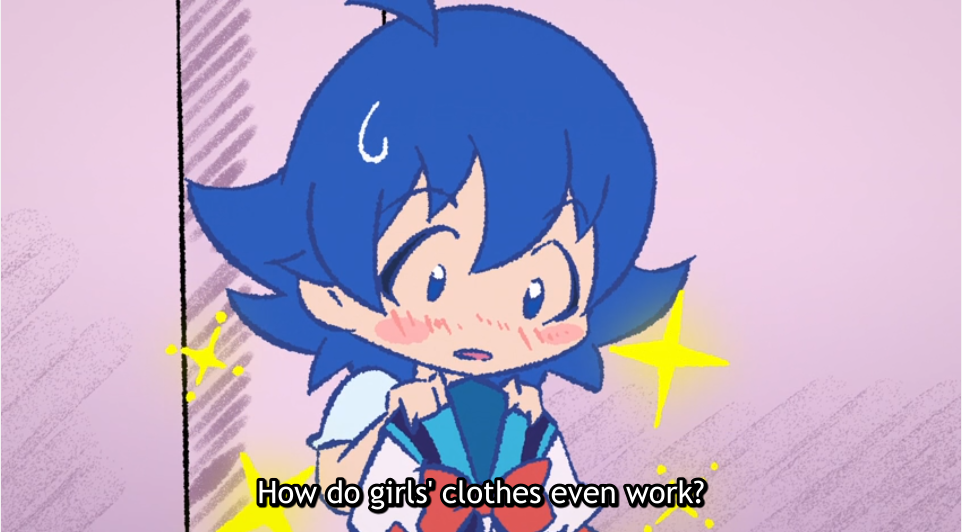Anime Review: Welcome to Demon School! Iruma-kun
Iruma Suzuki is illegally working aboard a tuna fishing boat when we first meet him, a job arranged by his abusive parents to net them his salary. There’s a storm on, and Iruma is about to be crushed by the cargo when a demon appears. The demon, Sullivan, explains that Iruma’s parents have sold him to the demon. Talk about going from frying pan to fire!

Once in the Netherworld, however, it’s revealed that Sullivan’s primary motivation for wanting a human child is so that he can have a “grandchild” to spoil. For the first time in his life, Iruma has his own room, can eat as much as he likes, and will be attending school regularly. However, there’s a catch. Bablys High School is a school for demons, and the school song is all about how much they want to eat humans. Iruma will have to conceal his homo sapiens identity to survive!
Sullivan casts a few spells to make the deception easier, and Iruma tries to avoid standing out…only to constantly find himself in the spotlight. Among other things, Asmodeus Alice, a student who placed first in the entrance exam, is kind of miffed that Iruma, who only got in because Sullivan is the chairdemon of the school, gets honored with the first speech at opening ceremonies. He challenges Iruma to a duel.
Iruma wins the duel; his horrific past has made him an excellent dodger and a spell he semi-accidentally cast earlier allows him to leverage Asmodeus into a German suplex. Azz is gracious in defeat and becomes Iruma’s first subordinate. A bit later, the two meet the wacky but lovable Clara Valac, who loves to play with Iruma, who is the first person who’s played with her because he actually likes her. Iruma, uncomfortable with “subordinate”, promotes them to “friends.”
They’re assigned to the “Abnormal” class of wacky misfits, and their school life begins!
This animated series is based on the shounen (boys’) manga Mairimashita! Iruma-kun by Osamu Nishi. It’s a school comedy series with a strong action component, and a growing element of romance, though our hero seems oblivious to the latter. In many ways, demon society is a distorted reflection of Japanese society, so it’s more a matter of minor cultural clashes than the demons being incomprehensible to humans. This manifests, for example, in the demon game of “Execution Cannonball” just being dodgeball except played by superpowered demons.
Iruma’s a pleaser, possibly because of his abusive childhood, which makes it difficult for him to turn people down. While it tends to get him into wacky hijinks, it often is beneficial. Demon society is low empathy, so helping out people just because they ask with no ulterior motive is a novelty to those around him. And this allows others to show their better sides.
But the selfish nature of demons also means that they don’t always act in their own or others’ best interests, which helps the plot along. And as the series goes on, we meet some genuinely evil demons. (And Iruma’s human nature becomes known to a couple of people.)
The series also takes advantage of the new medium to try some tricks that weren’t in the manga, like Clara’s family breaking into spontaneous musical numbers, and comedic stingers in a slightly different animation style.

Content notes: Iruma’s horrible past is played for comedy, and we see little of it. His are not the only terrible parents. Like many shounen series, there’s some male-oriented fanservice. It’s surprisingly mild considering there are succubi at the school. The seemingly mandatory perv character is also pretty mild. Oh, and mention of torture being a school subject.
The first season ends on Iruma having achieved a status quo, and a preview of the next big status quo change.
Surprisingly wholesome for its subject matter, this series makes a good change up from heavier or more violent anime.

